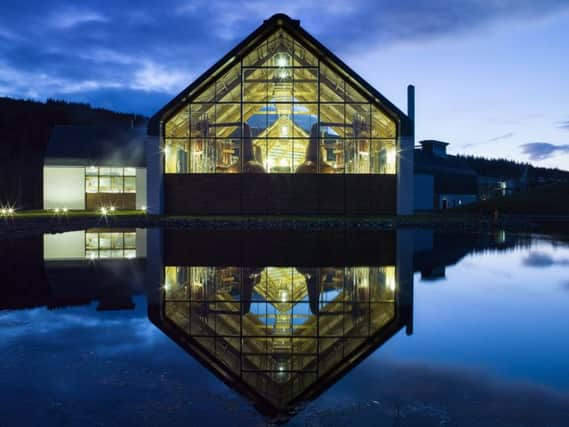How a Scotch whisky producer is setting up for a sustainable future


The Dalmunach Distillery near Aberlour, Moray, is the company’s most energy-efficient distillery, and uses 38 per cent less energy than the industry average for sites of a similar size.
“We believe sustainable business should be at the core of any enterprise that takes a long-term approach and expects their product to have a purpose and role in society,” says Ronald Daalmans, environmental sustainability manager for Chivas Brothers.
“To me, personally, this means making sure we can say we are using resources responsibly, and reducing or treating emissions. Although many environmental challenges have been met, we still have significantly more to do, especially when it comes to carbon emissions, fossil fuels and heat.
“Commitment to specific targets, and resources to achieve them, is key to ensuring we end up with the right technologies for a sustainable whisky industry that remains a core part of the local community.”
As headline sponsor of VIBES: Scottish Environment Business Awards, Chivas Brothers is helping champion environmental sustainability for businesses.
Since they were established in 1999, the VIBES awards have recognised more than 150 businesses in Scotland that are taking significant steps to reduce their impact on the environment, typically making significant savings in the process.
Earlier this month, Scottish environment secretary Roseanna Cunningham confirmed that Scotland was setting an ambitious new target of net-zero greenhouse gas emissions by 2045 – meaning the country will stop contributing to climate change within a generation.
“There is a global climate emergency and people across Scotland have been calling for more ambition to tackle it and safeguard our planet for future generations,” Cunningham said. “Every single one of us now needs to take more action – not just the Scottish Government but also all businesses, schools, communities, individuals and organisations.”
VIBES is run in a strategic partnership between the Scottish Environment Protection Agency (SEPA), the Scottish Government, Scottish Water, Scottish Enterprise, Highland and Islands Enterprise, Zero Waste Scotland, Energy Saving Trust and Scottish Natural Heritage.
Terry A’Hearn, SEPA chief executive, says: “The scale of environmental challenge facing humanity is enormous, with a real urgency to act. If everyone lived as we do in Scotland, we would need three planets to sustain our current living. Yet we only have one.
“This underpins One Planet Prosperity – SEPA’s regulatory strategy for tackling the challenges facing Scotland’s environment.
“A key premise is that only those businesses, societies and nations that have developed ways to reduce their water, materials and carbon-based energy consumption, as well as creating little waste, will thrive.
“This is about businesses not just complying with environmental legislation – but going beyond – to help us leave behind a better world than the one we inherited.”
“Scottish Enterprise believes tackling climate change is critically important in a 21st-century economy and works with businesses and sector bodies to promote sustainable business.
“Our team works with companies to identify, develop and deliver projects which lead to improved business efficiency,” explains Ken Maxwell, sustainability specialist at Scottish Enterprise.
“The aim of our support is to improve the efficiency of premises, products and processes – leading to reduced costs and improved environmental performance.
“We also help to ‘future proof’ business practices by encouraging discussion on the impacts of climate change and identifying opportunities arising from increased awareness of sustainability issues and the circular economy.”